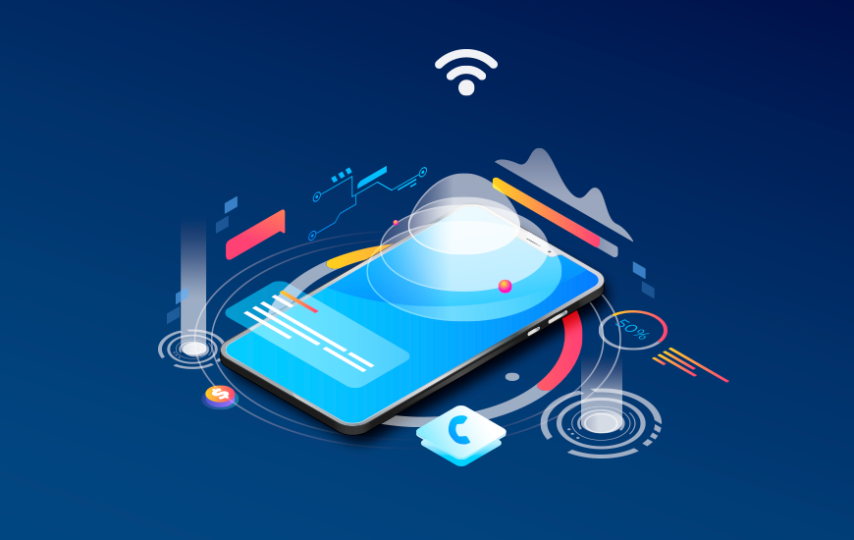The new decade has just begun, and the expectations are high for the technological developments. If it is true that we still do not have flying cars like some sci-fi movies predicted years ago, there are still some trends that will grow absolutely and will lead the next generations. Here are our top 5 picks.
1. Multi-experience
“The computer is no longer a point of interaction and is spreading out, with multiple triggering and detection points.” says the Gartner consultancy, a global research and advisory firm that provides information and tools for leaders mainly in IT. Increasingly, the world itself is becoming smarter.
By 2020 we should see the affirmation of smart home, such as Google Home and Amazon Alexa and the advancement of wearables such as smart wristbands, wearables and household products. The arrival of 5G networks provides the means for new augmented reality and virtual reality applications and devices.
Facial recognition is expected to advance even more, says Vanessa Pegueros, chief security officer of OneLogin, Silicon Valley access management company.
2. Artificial intelligence
Companies such as fast-food giant McDonald’s bought artificial intelligence companies in 2019. To be worthwhile, those investments will have to bring visible results this year. Exponential growth and personalized service, two dreams of any business, are apparently opposite – but they can happen at the same time thanks to artificial intelligence (AI).
There are various reasons why companies took the development of artificial intelligence. First, because technology has become fundamental. “AI-based analytics will increasingly become a natural extension of automation, enabling companies to gain greater network insights, benefiting security, availability and overall business agility,” said Keerti Melkote of Hewlett’s Intelligent Edge.
It is even an important part on sporting events and currently for example, the Kentucky Derby horse race enthusiasts, couldn’t have such immediate access to results and stats if it weren’t for AI.
“Today, everyone is in the process of going digital, doing more or less the same things, accessing more or less the same resources and information,” says Cesar Gon, CEO of CI&T.
3. Autonomous vehicles
Electric trolleys, capable of carrying up to 30 pounds, will transport food inside shopping malls and gated communities. Tesla keeps on innovating and introduced a user-friendly vehicle with new improved models. Abroad, Amazon, Uber and Wing, will take off their drones to deliver packages within 30 minutes.
Still far from taking over traffic, autonomous vehicles will gain real applications by 2020. At the Tokyo Olympics in July, one hundred driverless minibuses will transport athletes and spectators from one stadium to another and from them to the Olympic village. While a fleet of smart cars will support the torch relay marathon.
“Already existing in controlled environments, such as mining areas and logistics centers, autonomous devices will move into spaces open to the public,” says the Gartner report. “They are also no longer solitary machines for teamwork, like the drone swarm presented at the 2018 Winter Games.”
4. Cloud Computing
Cloud computing is appealing as technologies such as AI become strategic for any type of business. For Matthew Halliday, former vice president of Oracle and co-founder of Incorta – American startup of data processing and analysis – in 2020 the cloud will open the market for quantum computing.
“Although we are years away from popularization, the number of initial applications will skyrocket by 2020 as companies like Google and IBM team up with smaller companies to market their quantum skills,” he says. “As a result, the year will have heavy investments from venture capital funds.” Other brands will surely join-in and make big steps regarding cloud databases.
5. Blockchain
An incentive for technology will come from governments. “China, for example, said it should increase investments in the area to accelerate blockchain development, as well as launching its own crypto,” recalls Guilherme Canavese, chief operating officer of Golchain, a blockchain platform.
In 2019, it entered the daily life of banks and companies intensive in documentation and logistics, and by 2020, Gartner consultancy bets, it is expected to gain more mundane applications – until it becomes fully scalable by 2023. “Private use codes, rather than public bases like Bitcoin and Ethereum, are gaining an uncomplicated approach by implementing only some elements of a complete chain,” says the report.








